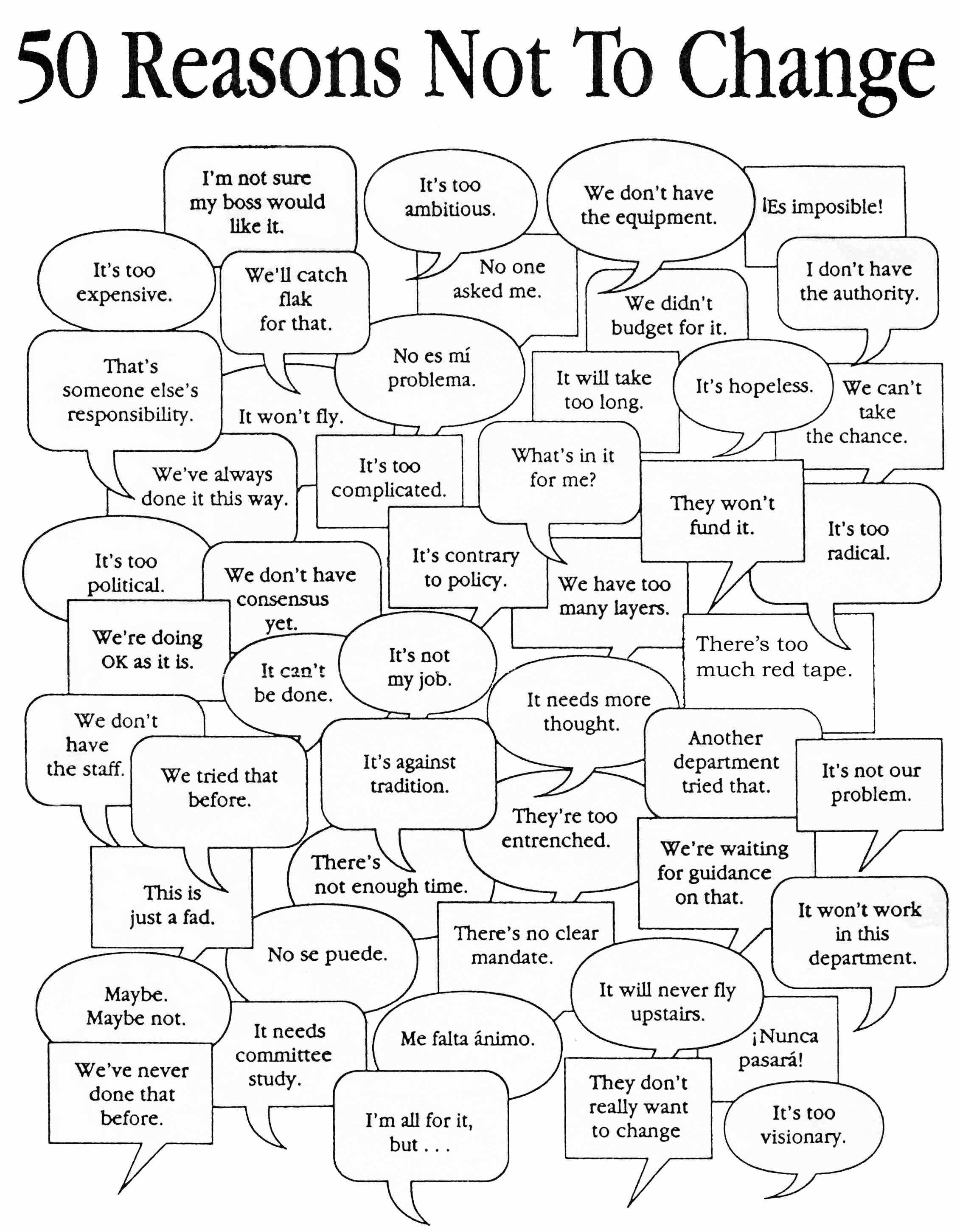Lately, I've found myself becoming forgetful about how hard change really is. Sometimes I feel frustrated sitting with a client, who is saying the same things they said the last time, and the time before that - complaining about a situation that is within their control, but about which they have done nothing. (Don't worry, I don't express the frustration outside of supervision. Instead I remind myself of what I'm writing about here!)
There are all kinds of reasons why a client may not be working to change a problematic situation.
1) They may not see the problem. I know that sounds crazy, but as they say, denial is more than a river in Egypt! People may not acknowledge the presence of a problem at all, or may think the problem is something totally different from what other people see.
2) They may not be sure they want to change. Many people come to therapy very ambivalent about change - they feel pulled just as strongly away from change as they are toward it (and vice versa)
3) They may want somebody else to change - a very common phenomenon, particularly in family therapy, but also in individual therapy. I saw someone today for the second time, and his ideal "treatment goal" is to get me to tell his girlfriend that she's wrong and should do what he says.
4) Staying the same is familiar and comfortable, even when it sucks; change is scary, even when it's good.
5) They may not know that change is possible. If things have been this way for a long time, they may not have really imagined any alternative.
6) They may not believe change is possible for them. Even if they know that it's theoretically possible (or at least that their naive, delusionally optimistic therapist believes it to be possible!), they may have developed learned helplessness - the expectation that their efforts to change the status quo will fail.
7) They may not know where to start. If this is the dilemma, that's good news, since hopefully the therapist has some sense of how change happens! However, if they have had some false starts due to strategic errors, it can erode morale when it's most needed.
8) They may get frustrated with how slow the change process is (much like me at the beginning of this post!) When that happens, it can help (clients and therapists alike!) to review and highlight the little changes that have already taken place, instead of continuing to focus on how far away the goal may be.
I'm sure there are other reasons (feel free to add them as comments!), but these are the ones I encounter most often. Remembering these potential barriers to change helps me stay patient and empathic when I'm tempted to become frustrated. I also remember that my discomfort with my client's "stuckness" is nothing compared to the client's discomfort - they have to live in it, while I just visit.
How do you understand stuckness, and the change process? How do you help clients stuck at various points along the way?


No comments:
Post a Comment